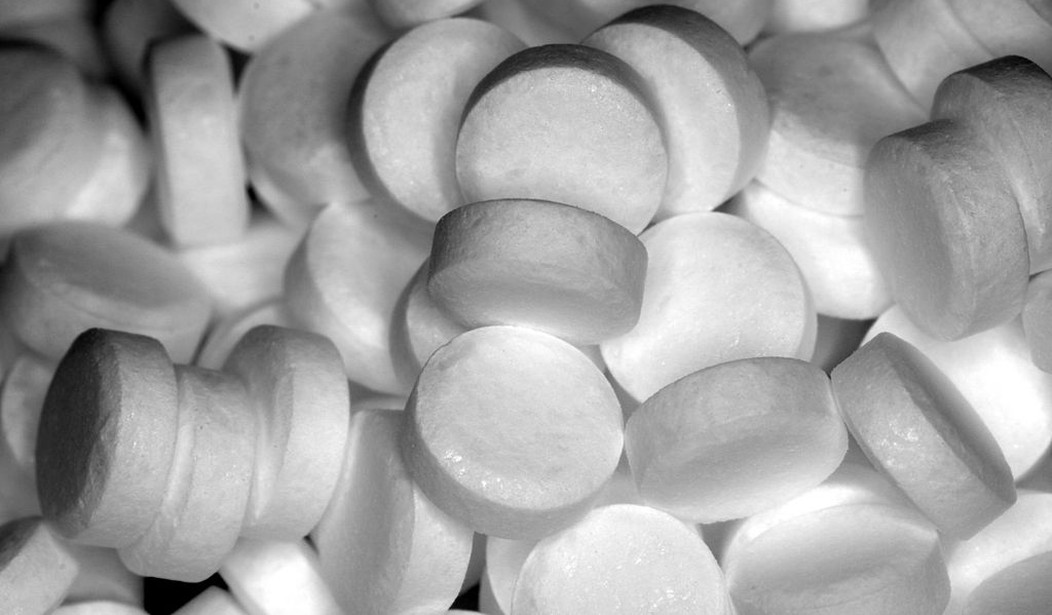Aspartame, one of the most common artificial sweeteners — found in everything from diet sodas to cough drops to other pharmaceuticals — may soon be marked as a carcinogen (cancer-causing agent) by the world’s preeminent public health body.
Via Reuters:
One of the world’s most common artificial sweeteners is set to be declared a possible carcinogen next month by a leading global health body, according to two sources with knowledge of the process, pitting it against the food industry and regulators.
Aspartame, used in products from Coca-Cola diet sodas to Mars’ Extra chewing gum and some Snapple drinks, will be listed in July as “possibly carcinogenic to humans” for the first time by the International Agency for Research on Cancer (IARC), the World Health Organization’s (WHO) cancer research arm, the sources told Reuters.
Exclusive: Aspartame, one of the world's most common artificial sweeteners, is set to be declared a possible carcinogen next month by a leading global health body, pitting it against the food industry and regulators https://t.co/7Jv2XiJmAU pic.twitter.com/8bKuC53BMx
— Reuters (@Reuters) June 29, 2023
Far be it for me to blindly endorse any decrees issued by the itself-cancerous World Health Organization given its highly suspect funding sources and questionable motives. There is also the issue of dosing, as the Reuters article rightfully raises. Almost any substance, even water, can be harmful and even fatal in sufficient quantities.
Nonetheless, caveats aside, a substantial body of scientific literature supports the labeling of aspartame as a carcinogen.
For instance, via a 2021 study published in Environmental Health following up on another 2007 study investigating the potential cancer-inducing effects of aspartame:
Aspartame is one of the world’s most widely used artificial sweeteners and is an ingredient in more than 5000 food products globally. A particularly important use is in low-calorie beverages consumed by children and pregnant women.
The Ramazzini Institute (RI) reported in 2006 and 2007 that aspartame causes dose-related increases in malignant tumors in multiple organs in rats and mice. Increased cancer risk was seen even at low exposure levels approaching the Acceptable Daily Intake (ADI). Prenatal exposures caused increased malignancies in rodent offspring at lower doses than in adults.
The state-of-the-art reanalysis of the Ramazzini Institute data [22] confirms that aspartame is a chemical carcinogen in rodents. This reanalysis confirms that 92% of the lesions observed in experimental animals exposed to aspartame in the RI studies were indeed malignant.
Similar studies, here and here, offer similar conclusions — the latter finding that “artificial sweeteners (especially aspartame and acesulfame-K), which are used in many food and beverage brands worldwide, were associated with increased cancer risk.”
Then there is the highly suspect approval process undertaken by the FDA in the late 1970s, which would seem to indicate some level of malfeasance on the part of the regulatory authorities — something which should come as no surprise to anyone paying attention to the COVID-19 shots fiasco of the last few years.
Scientists, on the basis of early testing, were saying aspartame was a carcinogen in the late 1970s and early 1980s, but Donald Rumsfeld, who was CEO of the company that owned Aspartame, became part of the Reagan transition team and got to appoint the new head of the FDA, who… https://t.co/C4asrmOHXU
— RAW EGG NATIONALIST (@Babygravy9) June 29, 2023










Join the conversation as a VIP Member